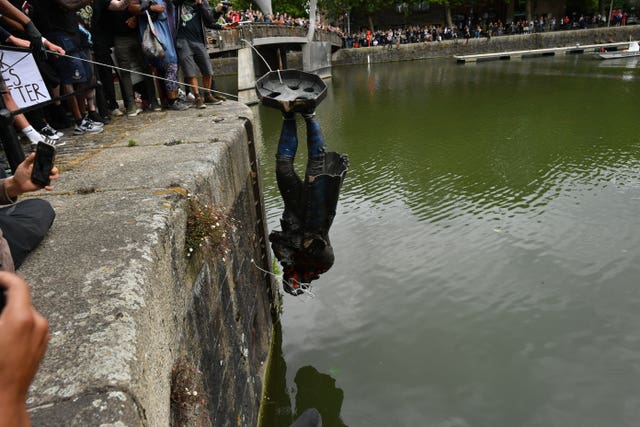TV historian David Olusoga has recalled the horrific racist abuse he and his family were subjected to in his childhood, and thanked former England footballer Paul Gascoigne for stepping in to help.
Olusoga was born in Nigeria, his father’s home country, and moved to his mother’s home of Gateshead, Tyne & Wear, as a child.
The family encountered appalling abuse and was targeted by the National Front, who drove them from their house after smashing the windows in the middle of the night.

During an appearance on Desert Island Discs, Olusoga said racism was “just the background hum of life” and “in some ways the most frightening thing about it is we got used to it”.
He told host Lauren Laverne how one of his teachers had a coffee mug bearing a National Front slogan while another attacked him during a school trip.
Recalling the night the family home was attacked, Olusoga said thugs strapped racist messages to bricks before throwing them though the windows.
He said: “I think it says something quite remarkable about the power of the idea of race. Because these guys were probably not much older than me and my siblings.
“They went to the same shops and the same cinemas, they supported the same football team. And they decided that the right thing to do was to get up in the middle of the night and throw bricks through the glass windows of bedrooms in which children were sleeping.”

Olusoga, who presents the acclaimed BBC documentary series A House Through Time, also remembered the day schoolmate Gascoigne helped him.
He said: “My older sister, Yinka, was three years ahead of me and in her class was Paul Gascoigne. I have one memory of Paul, one strong memory.
“Which is of lying on my back having been pushed over and hit in the playground and this kid with light coloured hair and very bright blue eyes leaned over, he was beside my sister and he gave me his hand and he pulled me up.
“He must have been maybe nine, I must’ve been maybe six or seven, something like that. He was one of the tough kids, you won’t be surprised to learn. It wasn’t really in his interest to be looking after this couple of black kids. And I’m very grateful for that.”
Olusoga lives in Bristol and repeated his support for protestors who toppled the statue of 17th century slave trader Edward Colston and pushed it into the city’s harbour.

“I think his statue pretended that the only story about him was his philanthropy,” he said. “Undoubtedly, he was a man who gave lots of money to Bristol, but that money came from slavery.
“And that statue that told one side of his story and denied the existence of his victims, I think that was an appalling, appalling thing to have on public display.
“It was always something that bothered me about Bristol and I think Bristol is a better place without it.”
Last year Olusoga gave the annual James MacTaggart Memorial Lecture, the keynote speech of the Edinburgh TV Festival.
He warned there was a “lost generation” of black and brown people who had left the TV industry because of its lack of diversity.
Olusoga said he received messages from other people of colour saying their experiences in the industry had matched his.
He added: “And that made me feel vindicated in having agreed to do this lecture and talked about myself so candidly and so personally. And it also made me hopeful that my lecture was a small part of what hopefully is a tipping point for an industry I care about very deeply.”
Listen to Desert Island Discs on BBC Sounds and BBC Radio 4, Sunday, 11am.
